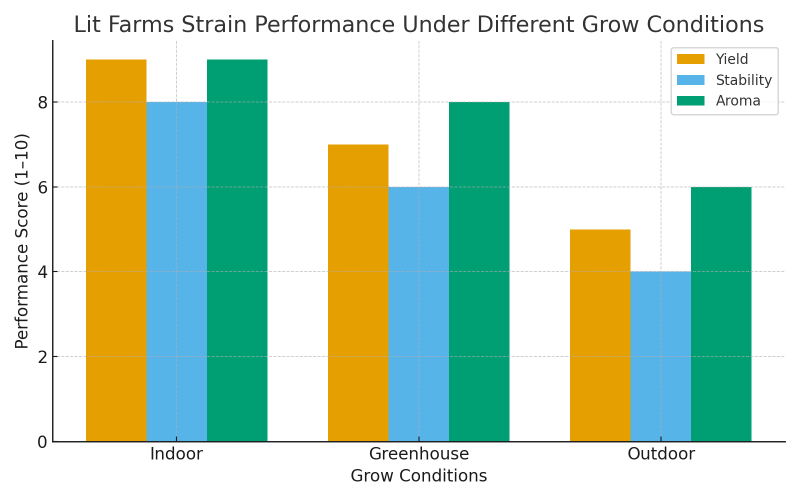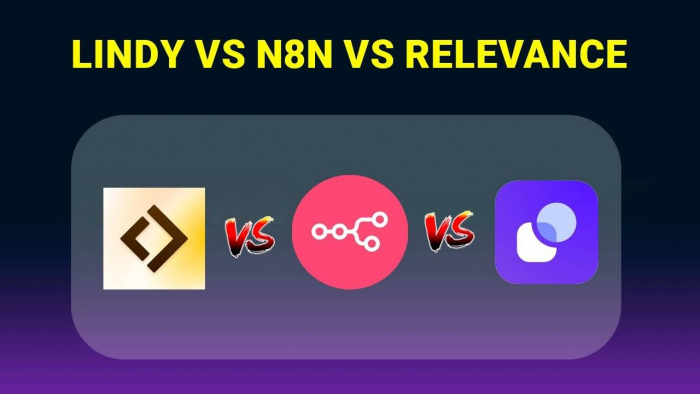Table of Content
- Who Owns Lit Farms and Where Is It Based?
- Popular Lit Farms Strains and Their Lineage
- What Is Lit Farms and What Does It Offer?
- What Lit Farms Claims vs. What Growers Report
- How Lit Farms Performs in Different Grow Conditions
- Terpene Profiles and Flavor Expectations
- Yield Potential and Flowering Time
- Where to Buy Authentic Lit Farms Seeds
- How to Spot Fake Lit Farms Seeds
- What Growers on Reddit and Trustpilot Are Saying
- Transparency and Quality Control Practices
- Why Seed Stability Matters for Growers
- How to Test Germination Rates at Home
- Lit Farms Customer Support and Replacement Policies
- How Lit Farms Compares to Other Breeders
- Is Lit Farms Worth It?
- Final Thoughts
- FAQs About Lit Farms Seeds
In cannabis genetics, reputation changes fast. Lit Farms, short for Lost in Translation, divides opinions in grower communities. Some call it a game-changer; others say it’s style over substance.
This expanded review looks at everything — origins, strain lists, grower feedback, legitimacy, risks, and buying advice — so you can decide if Lit Farms deserves space in your grow room.
Who Owns Lit Farms and Where Is It Based?
Lit Farms was founded in the United States by breeders passionate about small-batch cannabis genetics. The brand’s name, Lost in Translation, hints at its philosophy — taking classic strains and reimagining them into flavorful hybrids that stand apart from mainstream lines.
Its partnerships with distributors and occasional collaborations with well-known breeders have helped it gain visibility across global seed markets.
Now that we know where it comes from, let’s see what makes it unique.
Popular Lit Farms Strains and Their Lineage
Lit Farms has built its reputation around dessert-style and fuel-flavored cultivars. Some of the most discussed include:
| Strain Name | Lineage | Flavor Profile |
|---|---|---|
| Rainbow Saltz | Jealousy x Zkittlez | Sweet, fruity, gassy |
| Soap | Animal Mints x Kush Mints | Floral, creamy, pine |
| Pancakes | London Pound Cake x Kush Mints | Buttery, sugary, smooth |
| Jealousy Crosses | Jealousy x multiple hybrids | Fruity, diesel, citrus |
| Lit OG S1 | OG Kush phenotype | Classic gas, earth, citrus |
These names draw attention, but the real test begins when seeds sprout.
What Is Lit Farms and What Does It Offer?
Lit Farms presents itself as a boutique breeder focused on limited drops, exotic terpene blends, and resin-heavy production. It appeals to extractors and enthusiasts who value aroma and novelty more than uniformity.
However, the company doesn’t sell directly on a large scale. Instead, it partners with resellers such as North Atlantic Seed Company, which means the buying experience can vary.
With its reputation for exotic flavors, it’s easy to see the hype — but what happens when those seeds hit soil?
What Lit Farms Claims vs. What Growers Report
The Official Claims
- Germination rates close to 100 percent
- Distinct dessert-style terpene profiles
- Exceptional trichome coverage for extraction
- Exclusive collector-style drops
Real-World Results
- Growers on Reddit and forums share both success and disappointment:
- “Excellent color and smell, but only half the seeds sprouted.”
- “Each plant was different — one smelled like lemon candy, another had no scent at all.”
Trustpilot reviews show similar divides. Some customers note smooth replacements and fast shipping; others mention unanswered messages or missing orders.
Clearly, the results depend as much on the batch and the vendor as on the genetics.
How Lit Farms Performs in Different Grow Conditions

Grow diaries show that Lit Farms strains thrive indoors under controlled light and humidity but can be temperamental outdoors. Temperature swings or inconsistent watering often lead to stunted growth or mutations.
Experienced growers recommend low-stress training and careful nutrient control to manage phenotypic variety. Beginners may struggle to keep uniformity across plants.
Terpene Profiles and Flavor Expectations
Lit Farms’ appeal lies in its aromatic diversity. Growers often describe:
- Sweet candy tones (Rainbow Saltz, Pancakes)
- Floral-soapy notes (Soap, Jealousy crosses)
- Gas and caramel undertones (Lit OG S1)
These complex blends make Lit Farms popular among extractors who value high terpene content over yield predictability.
Yield Potential and Flowering Time
Average flowering runs between 8 and 10 weeks. Yield varies dramatically: some strains produce dense, trichome-rich colas, while others deliver low weight but exceptional resin.
For consistent results, growers often germinate more seeds than needed to pheno-hunt the best performers.
Where to Buy Authentic Lit Farms Seeds
To avoid poor-quality batches, purchase only from reputable seed banks such as:
- North Atlantic Seed Co.
- Seeds Here Now
- Neptune Seed Bank
Check for breeder-sealed packs and trackable shipping. Avoid deep discounts or resellers without clear breeder verification.
How to Spot Fake Lit Farms Seeds
Counterfeit packs occasionally surface online. Watch for:
- Misspelled strain names or low-resolution labels
- Pricing far below the market average
- Vendors unwilling to confirm breeder relationships
Real Lit Farms packaging usually features clean fonts, holographic seals, and unique strain codes.
What Growers on Reddit and Trustpilot Are Saying
_1759842019.png)
Reddit’s r/microgrowery threads show mixed outcomes. Some users praise standout phenos and unique smells; others report deformities and weak germination.
Trustpilot feedback leans moderate around three stars reflecting great experiences for some and unresponsive support for others.
In short, growers appreciate the creativity but remain cautious about reliability.
Transparency and Quality Control Practices
Lit Farms rarely shares detailed lab data or breeding methods publicly. While its reputation for innovative crosses is solid, the lack of published testing or genetic verification leaves room for speculation.
Growers looking for transparency may prefer breeders that list parent genetics, THC percentages, and lab-tested stability reports.
Why Seed Stability Matters for Growers
Stable genetics mean predictable growth and yield. When seeds vary too much, you risk inconsistent flower quality and potency. Many growers testing Lit Farms report wide phenotype variation, which makes uniform cultivation difficult.
Understanding this helps manage expectations before investing.
How to Test Germination Rates at Home
Testing seed viability is simple:
- Soak seeds in distilled water for 12–24 hours.
- Place them on a damp paper towel inside a plastic bag.
- Keep the bag warm and dark for 48 hours.
- Count how many sprout to calculate your germination percentage.
This test helps verify whether a pack meets its claimed success rate.
Lit Farms Customer Support and Replacement Policies
Customer service varies by reseller. Some verified distributors offer seed replacement guarantees if none germinate. Contact the vendor directly before purchasing to confirm their live-seed policy.
Lit Farms itself responds through distributors rather than a centralized support system.
How Lit Farms Compares to Other Breeders
| Breeder | Focus | Stability | Price Range | User Rating |
|---|---|---|---|---|
| Lit Farms | Exotic terpene crosses | Moderate | Premium | Mixed |
| Seed Junky Genetics | High-yield dessert strains | High | Premium | Strong |
| Exotic Genetix | Balanced hybrids | High | Mid to high | Strong |
| Compound Genetics | Rare flavor lines | Medium | High | Mixed |
| Clearwater Genetics | Accessible flavor strains | Medium | Moderate | Good |
Lit Farms ranks high for creativity but lower for consistency compared with established breeders.
Is Lit Farms Worth It?
Lit Farms offers excitement and risk in equal measure. Its seeds can produce unforgettable aromas or unstable growth depending on the batch.
For pheno hunters and collectors, it’s a playground. For first-time growers, it may be too unpredictable.
If you want creativity with caution, test a small pack, track performance, and decide whether the results justify the price.
Final Thoughts
Lit Farms sits between innovation and reliability. It brings new flavors to the market but leaves consistency to chance. Approach it like an adventure, not a guarantee, and you’ll likely enjoy the experience.
FAQs About Lit Farms Seeds
Does Lit Farms sell directly?
No, it mainly works through distributors.
Are the strain photos real?
Some may be stock images. Always confirm with verified sellers.
What is the average germination rate?
Growers report 50–90 percent depending on batch.
Why are prices high?
Exclusivity and small-batch breeding drive the premium.
Can I legally import these seeds?
Check local laws before purchasing.
Post Comment
Be the first to post comment!





